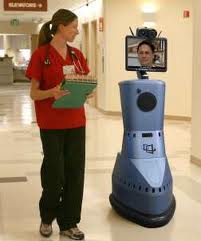How to Prepare for Them for a Job in Healthcare Industry?
Finally, you got the interview call for that much-awaited job and you want everything to go in the right course from here.
What you first need to do is prepare yourself for the Q & A part of the interview session. Preparing yourself with right questions is crucial for success of a job interview.
Asking right Q & A in a job interview keeps you focused on the interview and shows that you are interested in the job.
To prepare yourself for this critical stage of interview, you need to keep the following 10 questions & answers in mind:
Why Are You Interested in the Job?
Answering this question can make a huge difference in the outcome of your job interview. Rather than citing reasons, such as lucrative salary or outstanding allowances, you should tell the interviewer about how this job would help you reach your professional goals.
What Are Your Weaknesses?
This one can be a tricky question as no one would want to reveal his weaknesses or negative points. So you need to be more diplomatic with your answer and avoid saying something that would hurt your chances of getting the job.
Let’s say, you applied for the position of nurse. Rather than saying that you are an emotionally-sensitive person, you need to connect your kind-hearted nature to your job and how it would help you serve your patients whole-heartedly.
How Do You Deal With Stressful Situations?
Working in healthcare industry can be emotionally challenging as you will be dealing with critically-ill patients. So you have to come up with a good answer to convince the interviewer that you are a good fit for the job. To make a strong case, you can cite reason from your life experiences that make you strong enough to face the emotionally-demanding situations of hospital life.
What Were The Reasons That Made You Leave Your Last Job?
Your current would be interested to know the reasons that made you quit your last job. Avoid bitching about your previous employer as it will show you in the bad light. Instead you should cite your career goals as primary motives to leave your last job.
You can mention about career preferences, such as better working opportunities and higher work satisfaction, as major reasons for switching the job.
What Motivates You In the Job?
Your interviewer would be interested in knowing the things that make you feel motivated in the job. As you will be working in the healthcare organization, you should connect your answers to ordeals of patients and how consoling them makes you happy. This will show that you care for ailing people which is a fundamental objective of professionals working in healthcare organizations.
What Makes You Stand Out From Other Candidates?
Remember that you are one of the many candidates appearing in a job interview. So your employer would be interested in the unique skills you will bring along to the job. Selling your skills is crucial at this stage to increase your chances of getting the job.
For example, you can give organizational skills as your unique selling point and how it helps you effectively manage your job.
What Salary Would You Want?
Salary negotiation is a big and tactical part of any job interview. Settling on a good reimbursement would be critical for success of your interview. Keeping the margin of bargain in mind, you should take a door-in-the-face approach by asking for a bigger salary figure than you want. Keep it professional and make bargains in exchange for any extra responsibilities.
For example, if you are applying for the position that requires working in shifts, you should discuss about allowances and other perks that are applicable in shift work.
What Are Your Goals?
Employers are interested to know about your goals and how you intend to manage your career. The typical question “how do you see yourself five years down the line?” is a common question for a job interview.
For example, if you are applying for a position of general physician, you can discuss your plan of becoming a specialist and the academic and professional courses you intend to seek to achieve your ambition.
Why Do You Want to Work With Us?
The interviewer is interested to know the reasons that made you choose his organization. Giving generic answers would not help. Rather than giving common answers, such as “I like your organization” or “I have been dreaming about working in your organization”, you need to come up with more specific reasons as what inspires you to become part of the organization.
For example, you can say, “I want to work in your organization as it goes with my values.” Or “I am interested to work in your organization because it is serving a noble cause and I want to become a part of it.”
What Are Your Strengths?
An employer is interested to know about your strong points and what makes you a perfect candidate for the job. At this stage, you need to highlight your strengths and connect them with your job. For example, if you applied for the position of medical assistant, you can give reasons such as multitasking skills, attention to details and communication skills as primary reasons why you deserve the job.
Working in healthcare sector is a privilege for anyone as it gives you an opportunity to serve the humankind. Make sure that you keep in mind the above-mentioned 10 Qs & As to ensure success of your job interview for a position in this industry.
About Author:
Esperanza Denise is a HR manager for a fresh new startup that is dedicated to helping learners and providing help with dissertation. She’s also into sketching, painting, designing and blogging, and she spends most of her time finding something new to do.




